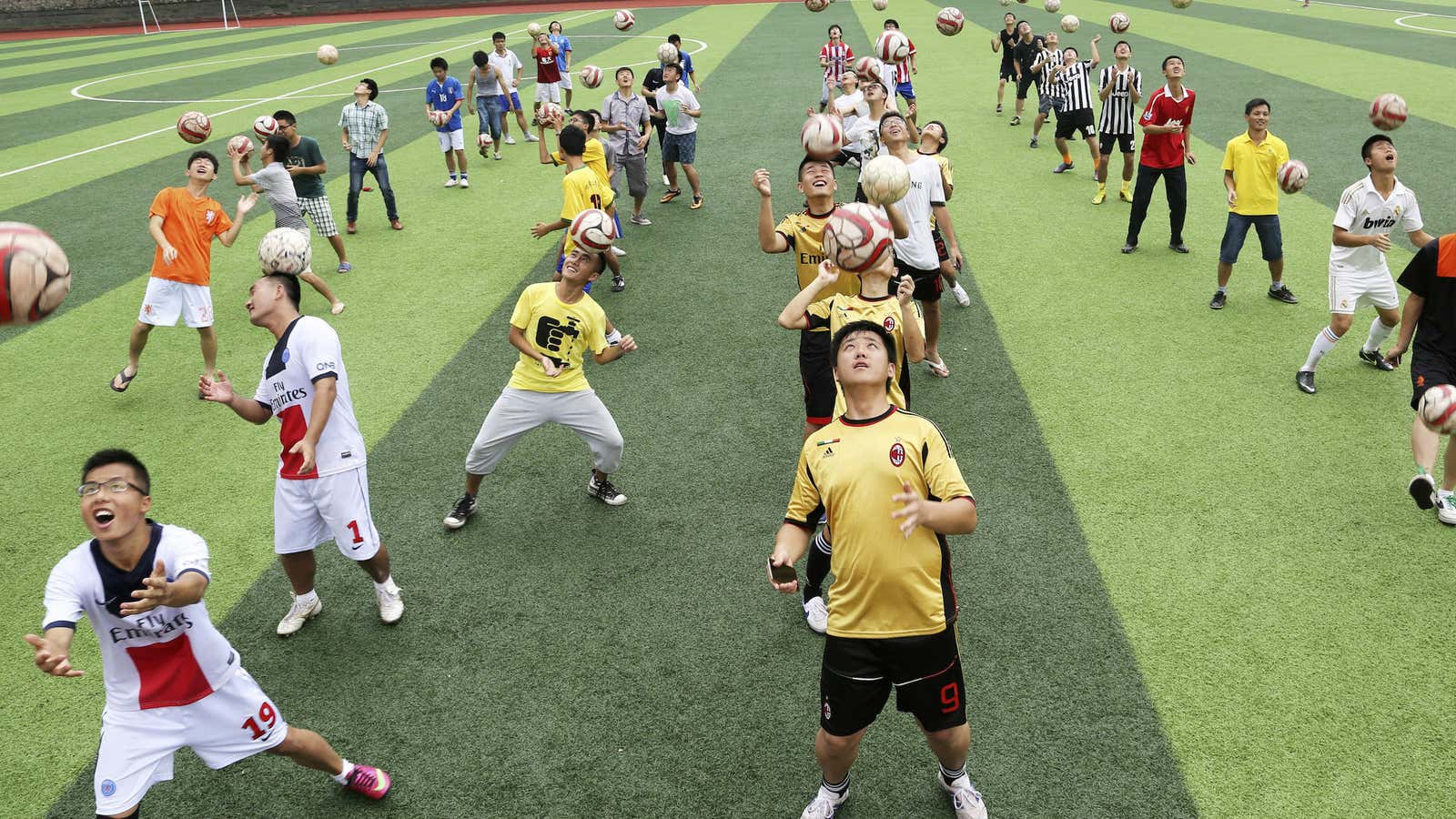Chinese e-commerce giant Alibaba is buying a 50% stake in the Chinese soccer club, Guangzhou Evergrande, at a cost of 1.2 billion yuan ($192 million). Investing in a Chinese soccer league is a somewhat surprising move for Alibaba, as well as its founder Jack Ma, who earlier announced he is buying a 49% stake in another football club, Hangzhou Greentown. Evergrande is owned by the property developer Evergrande Group, controlled by Xu Jiayin, a wealthy entrepreneur and member of a top Chinese legislative body.
“My lack of understanding for football is the very reason why I have to get in touch with it. Football is something that represents happiness. It is happiness that has deceived me,” Ma told reporters (link in Chinese).
China’s soccer industry is indeed perplexing. Chinese soccer has long been rife with corruption and has distinguished itself as a showcase for teams that range from mediocre to downright embarrassing. China has poured millions into its national sports teams to great effect at the Beijing Olympics in 2008 and the 2012 London Olympics. Still, success at soccer—and in most team sports—has eluded the country. China failed to qualify for the World Cup this year, and its national team ranks 92nd in the world, behind Saudi Arabia and New Zealand, and far behind its regional rivals Japan and South Korea.
But Ma and others seem to believe China’s football fortunes are about to turn for the better—and, not incidentally, a way to expand further into China’s entertainment sector, as part of a series of acquisitions Alibaba has made ahead of its blockbuster IPO later this summer. Ma described the deal as not “just an investment, but an investment in Chinese football.” Chinese leaders have prioritized cleaning up the Chinese Football Association after an investigation in 2009 overturned rampant bribery and match fixing and led to the dismissal and arrest of dozens of officials, players, and referees. China’s head of state, Xi Jinping even identified reforming China’s soccer industry as a key area for improving Chinese soft power abroad.
So far, those efforts have consisted of establishing an “independent professional league council” to help the national football association reform, and opening up teams to more private investment. Money and effort are being invested in developing young players. The Guangzhou Evergrande FC soccer academy, a massive complex that includes over 50 soccer pitches in southern China, is training 2,300 future players (paywall).
Current Chinese players are already making some headway: Guangzhou Evergrande, led by Marcello Lippi, an Italian coach whose team won the World Cup in 2006, became the first Chinese team to win the Asian Champions League last year. And even if China is unlikely to win the World Cup any time in the next 20 years, as Goldman Sachs analysts Yu Song and Vishal Vaibhaw concluded this week, it can take heart in the fact that India is even further behind.
